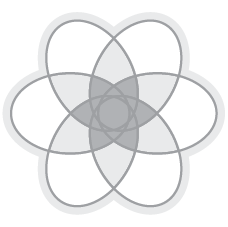4. Leader / Manager (LEA) (linked EPAs: 5, 6, 7)
As managers and individuals demonstrating leadership, physicians are engaged individuals who take the initiative to contribute in a collaborative way towards positive and sustainable change in health care, from the level of an individual patient to that of the healthcare system (leaders do not need a formal title to lead). Managers take responsibility for the delivery of excellent patient care through their activities as clinicians, administrators, scholars, or teachers.
They are able to:
| GO | 4.1 | understand the principles of population medicine and its strategies, and use the main tools which are used in epidemiology and public health. These include the gathering and use of health determinants and indicators, descriptive and explanatory statistics, risk and protective factors and the concepts of prevention and health promotion at individual, community and environmental levels |
| GO | 4.2 | define and illustrate health promotion and health-enhancing strategies at various levels, such as the monitoring and promotion of a safe environment and the promotion of effective public health policies and interventions. In doing so, they take into account financial, material and staffing resources, at both community and public health levels. |
| GO | 4.3 | recognize and respond to disease outbreaks, epidemics and pandemics |
| GO | 4.4 | identify and address the special needs of vulnerable populations, showing awareness of the importance of equity in the delivery of care. They seek collaboration with social services if appropriate |
| GO | 4.5 | address the psychosocial, insurance, financial and environmental aspects of handicaps and chronic diseases |
| GO | 4.6 | identify the roles and describe the functions of the health and invalidity insurance system and its impact on health and health care at both individual and collective levels |
| GO | 4.7 | integrate the principles of economic effectiveness and efficiency in daily work and the planning of healthcare provision |
| GO | 4.8 | identify and engage in opportunities for continuous improvement of the healthcare system, based on a critical understanding of the continuous transformation of medicine and society |





